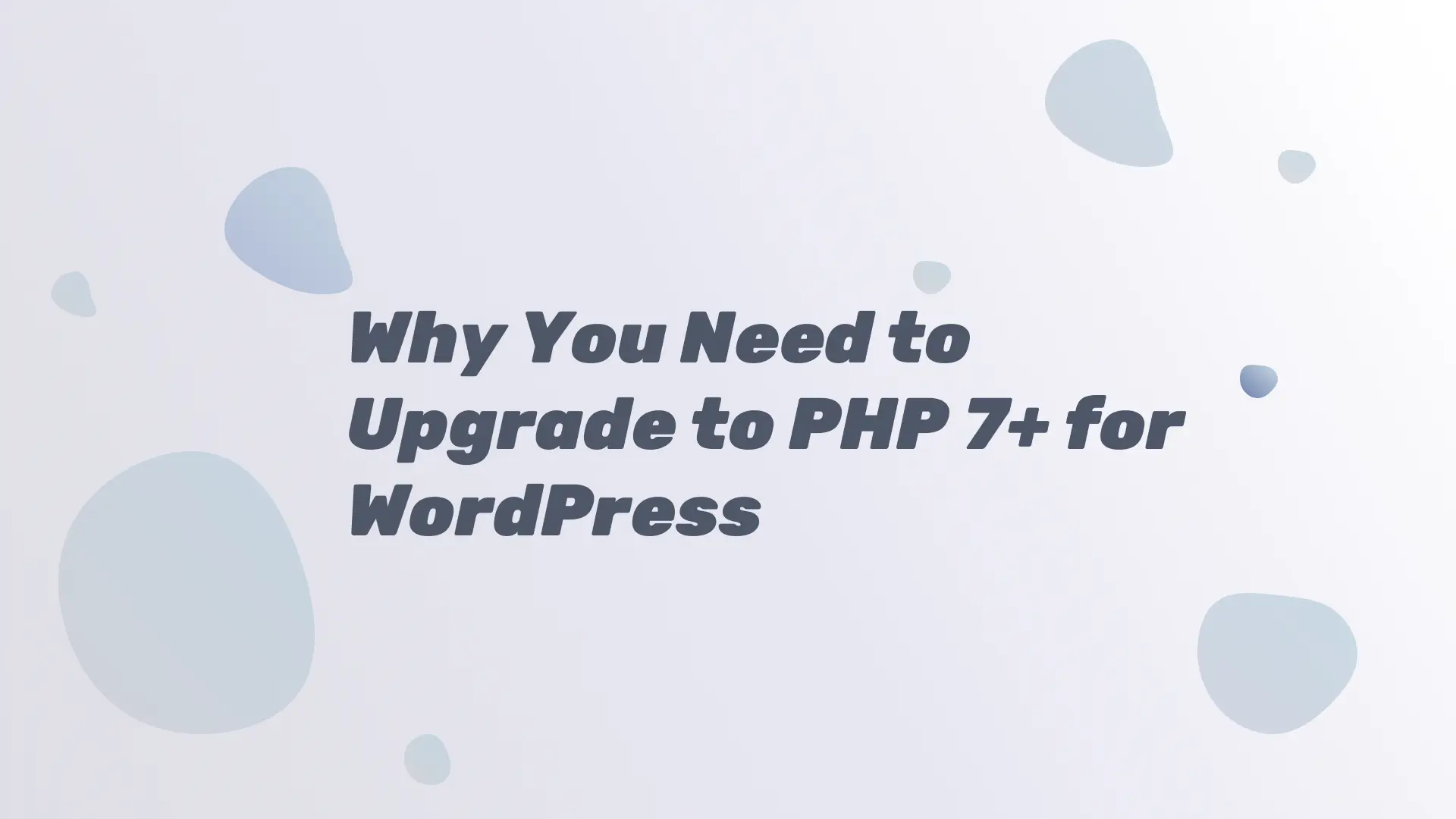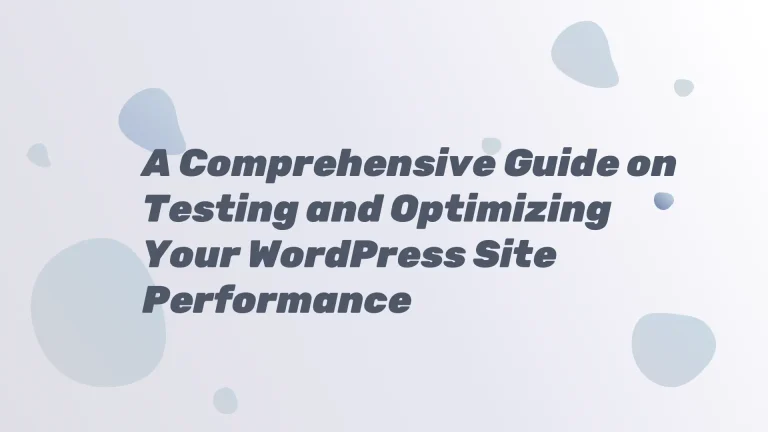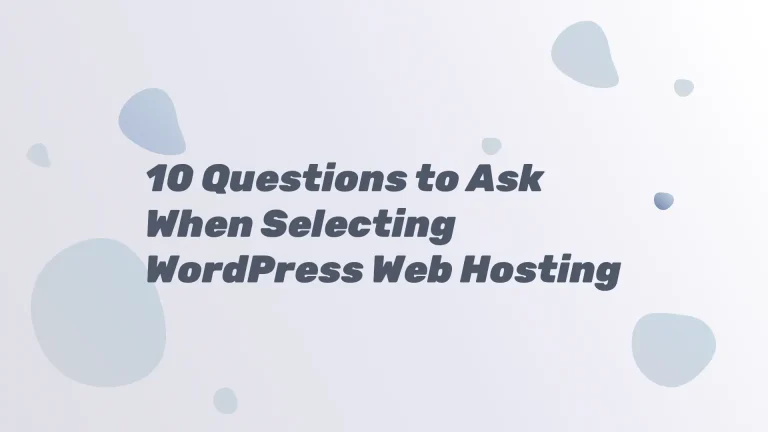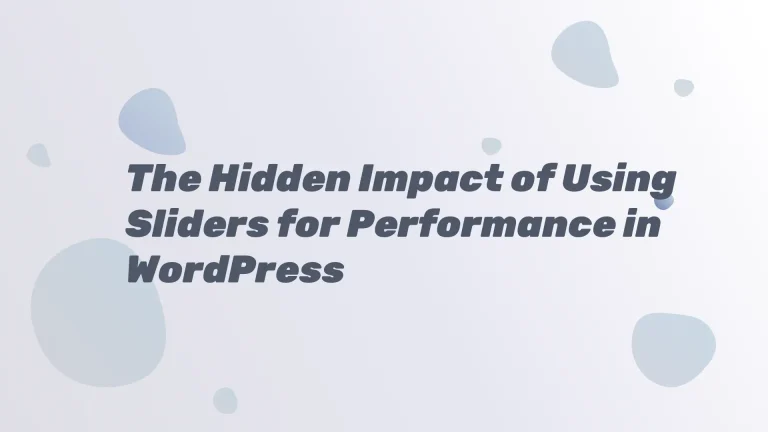Introduction:
In the dynamic world of web development, staying ahead of the curve is paramount. For WordPress users, one crucial step toward future-proofing your website and enhancing its performance is upgrading to PHP 7 or higher. In this article, we’ll delve into the reasons why this upgrade is not just a recommendation but a necessity for anyone serious about maximizing the potential of their WordPress site.
Performance Boost:
The primary motivation for upgrading to PHP 7 or higher is the significant performance improvements it brings. PHP 7 introduced a new version of the Zend Engine, the core of PHP, resulting in a considerable leap in execution speed. Benchmarks have shown that PHP 7 can handle twice as many requests per second as its predecessor, PHP 5.6. This means your WordPress website will load faster, offering visitors a smoother and more enjoyable experience.
Improved Memory Usage:
PHP 7 is not just about speed; it’s also about efficiency. The latest versions of PHP are designed to use memory more judiciously. WordPress websites running on PHP 7 can handle more concurrent users with lower memory consumption, making the overall hosting environment more resource-efficient. This improvement is especially crucial for shared hosting users who may have limited resources at their disposal.
Security Enhancements:
Security is a top priority in the digital landscape, and PHP 7 takes it seriously. Upgrading to PHP 7 or higher ensures that your WordPress site benefits from the latest security patches and features. The older PHP versions, particularly PHP 5.6, have reached their end-of-life, meaning they no longer receive security updates. Running an outdated PHP version poses a serious security risk, making your website vulnerable to potential threats. By upgrading, you actively protect your site from known vulnerabilities and bolster its defenses against emerging security risks.
WordPress Compatibility:
As the WordPress platform evolves, it aligns itself more closely with the latest technologies. WordPress officially recommends using PHP 7.4 or higher for optimal performance and security. Plugins and themes are also updated to leverage the features offered by newer PHP versions. By keeping your PHP version up-to-date, you ensure seamless compatibility with the latest WordPress releases and third-party extensions. This not only safeguards your site from compatibility issues but also allows you to take full advantage of the latest WordPress features and improvements.
Future-Proofing Your Website:
Technology is a relentless force of progress, and staying stagnant can leave your website trailing behind. Upgrading to PHP 7 or higher is not just about addressing the current needs of your WordPress site but also about future-proofing it. As web development continues to advance, new versions of PHP will bring even more optimizations and features. By staying up-to-date, you position your website to adapt and thrive in the ever-evolving digital landscape.
Support and Community:
As PHP evolves, so does its community. The vibrant ecosystem around PHP 7 and higher versions ensures that you have access to a wealth of knowledge, support, and resources. Many hosting providers actively encourage and support the use of the latest PHP versions, offering tools and documentation to assist with the transition. Additionally, a community of developers and experts can provide valuable insights and assistance, making the upgrade process smoother and more accessible.
Environment-Friendly Coding:
PHP 7 comes with features that promote cleaner and more efficient coding practices. The introduction of scalar type declarations, return type declarations, and the null coalescing operator allows developers to write more robust and maintainable code. Upgrading to PHP 7 encourages adherence to modern coding standards, fostering a healthier and more sustainable development environment for your WordPress projects.
Conclusion:
In conclusion, upgrading to PHP 7 or higher is not merely an option but a strategic move for WordPress users. The performance enhancements, improved memory usage, and enhanced security features contribute to a faster, more efficient, and secure website. By aligning your WordPress site with the latest PHP versions, you not only ensure compatibility with the current WordPress ecosystem but also future-proof your website against the rapid advancements in web development. Take the leap into PHP 7 and unlock the full potential of your WordPress experience.





